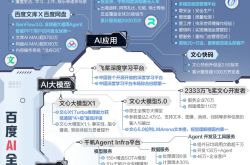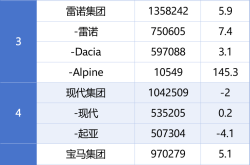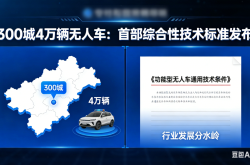AITO Wenjie Brand Unification Ushers in a New Era for Thalys
![]() 07/09 2024
07/09 2024
![]() 639
639
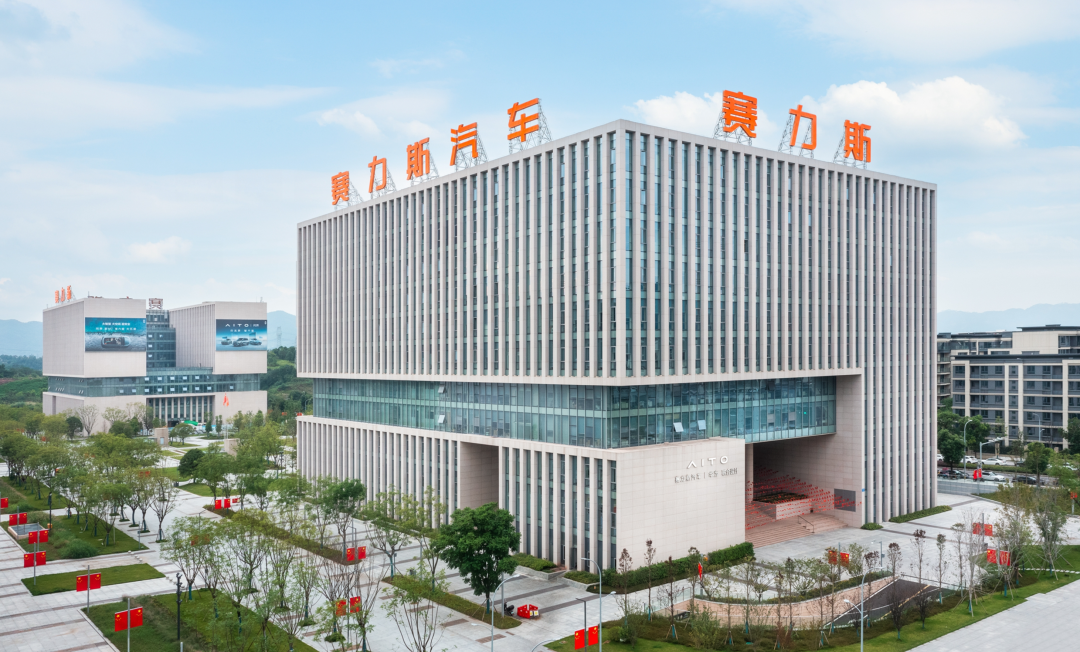
Introduction
Introduction
The cooperation between OEMs and ICT giants is embarking on a new chapter.
Editor-in-Charge: Li Sijia
Editor: He Zengrong
Recently, amidst a flurry of news in the domestic automotive industry, another bombshell exploded.
On July 2, listed company Thalys Automobile (hereinafter referred to as Thalys) issued an announcement stating its intention to acquire all global categories of the "Wenjie" and other related trademarks, as well as related design patents held by Huawei, for a total acquisition price of RMB 2.5 billion. The announcement also noted that this transfer of commodity and brand assets would not affect the existing cooperation between the two parties.
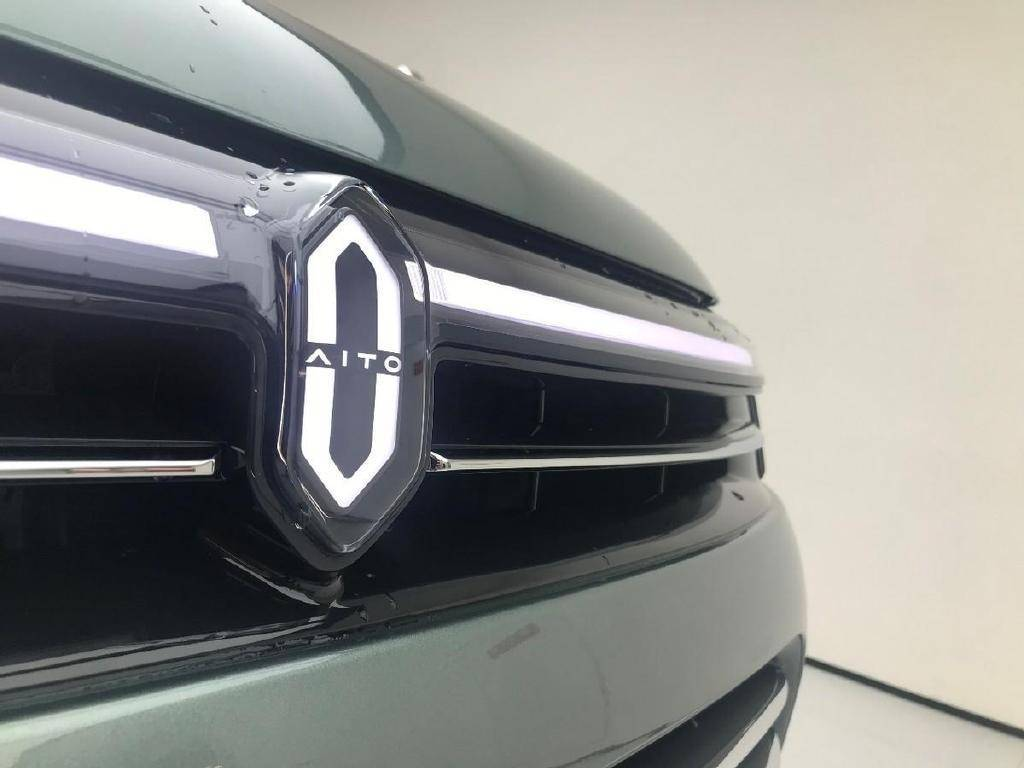
As the fastest-growing new energy vehicle brand in the past year, the AITO Wenjie brand was unexpectedly transferred by Huawei at such a juncture. Even though the receiver is Thalys, the sole core partner of the brand, this transaction has inevitably sparked speculations from the outside world.
Once the trademark ownership transfer is completed, will Huawei exit the current cooperation model that has transformed the domestic new energy vehicle market landscape? Even if the aforementioned extreme scenario does not occur, will its cooperation with Thalys remain as intimate as before? Has the in-depth cooperation between Thalys and Huawei surpassed the "honeymoon phase" and is now heading towards "pursuing their respective futures"?
Before delving into and elaborating on this matter, it is necessary to state the conclusion upfront—various facts prove that not only has the mode between Thalys and Huawei not changed, but their cooperation has actually become closer.
New Plans Between Partners
Contrary to what most people believe, the automotive brand commonly referred to as "Wenjie" is actually known in full as "AITO Wenjie."

The prefix "AITO" stands for Adding Intelligence to Auto, which belongs to Thalys.
Similarly, "Xiangjie" is fully known as "STELATO Xiangjie," where STELATO is a compound word formed by Stella (interstellar) and Auto (automobile), while "Zhijie" is actually "LUXEED Zhijie"—LUXEED means Luxury Exceed (luxury star journey).
In short, the logic behind this series of "Jie" brands is that Huawei empowers automakers in automotive intelligence, establishes joint brands, and creates new, transformative smart vehicles encompassing but not limited to cockpits, driving, and chassis. Of course, Huawei provides only the highly intelligent brain, while the shell that accommodates it must be entrusted to a specialized OEM.
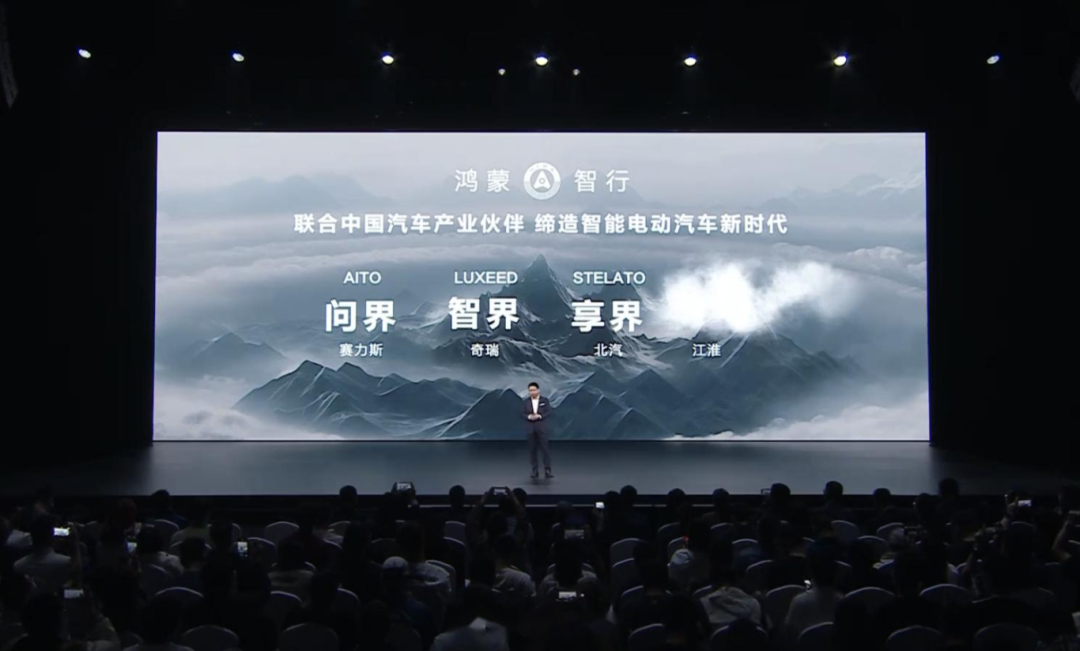
Image | The specific name of the fourth "Jie" has yet to be unveiled.
So, does the completion of the trademark transaction for "Wenjie" mean that the previous cooperation model between the two parties will come to an end? The answer is emphatically no. This adjustment at the trademark level actually began over a month and a half ago.
At the end of May this year, Huawei transferred its registered "Xiangjie" trademark for transportation tools to Beijing Electric Vehicle Co., Ltd. This trademark was applied for by Huawei in May 2023 and registered in November of the same year. Less than a week later, the "Zhijie" trademark was also transferred by Huawei to Chery Automobile Co., Ltd.
Until similar operations came to "Wenjie."
Compared to the other two "Jie" brands, the significant response from the outside world to "AITO Wenjie" is due to its current status as arguably the most heavyweight player in the domestic automotive circle. However, if you connect the dots between the transfers of Xiangjie and Zhijie, you can intuitively see the logic behind this series of operations—Huawei is systematically withdrawing from the perspective of the entire vehicle brand, but the cooperation remains unchanged.
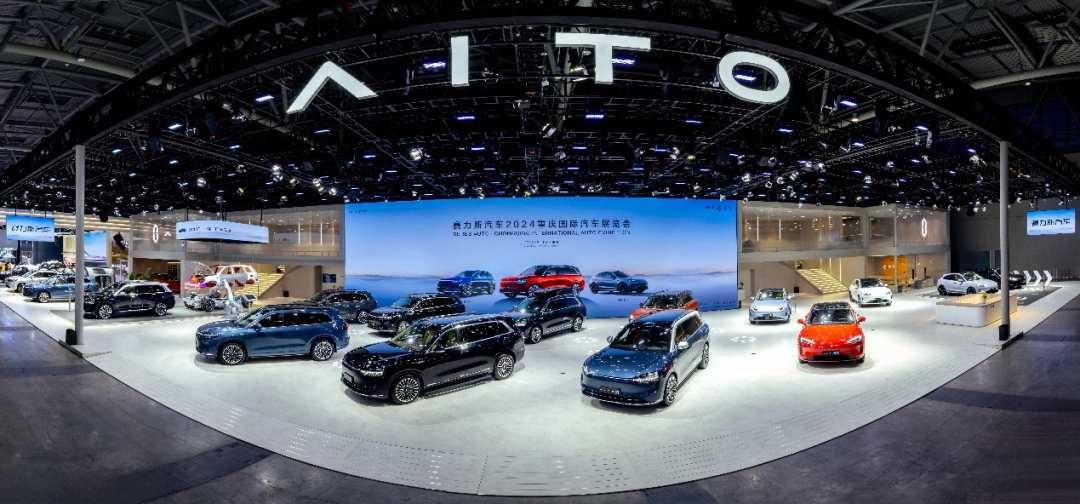
Image | Ultimately, the reason why Huawei's transfer of the Wenjie brand to Thalys caused ripples is because the AITO Wenjie series of automotive products are selling like hotcakes.
This withdrawal or "retreat" should be seen as Huawei's proactive move to continue advancing its development in the automotive field. Looking back at its corporate statement made more than four years ago, it explains everything. In its Document No. 223 in 2019, Huawei clearly stated that it would not manufacture cars, but would focus on ICT technology to help automakers build better cars.
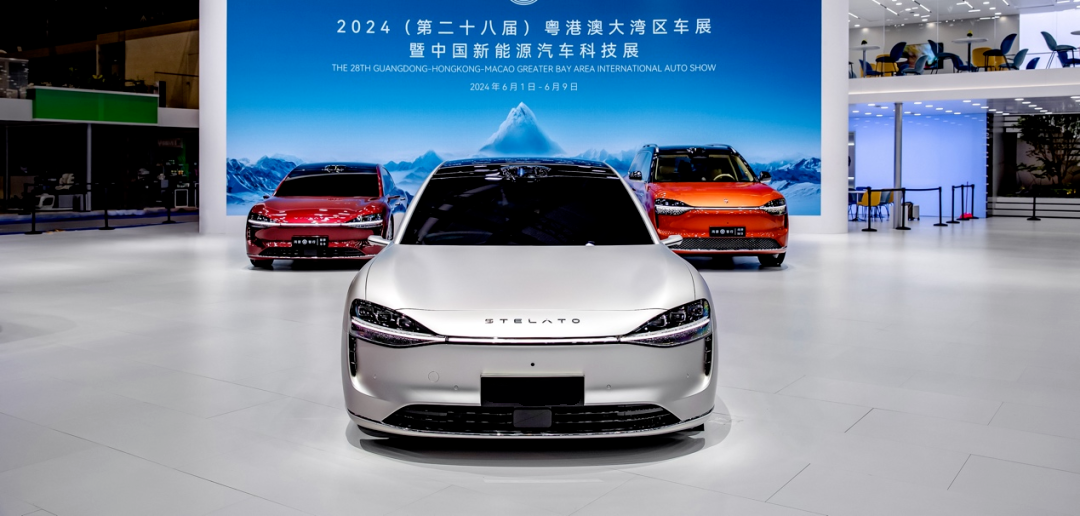
Image | After transferring the Zhijie and Wenjie brands, these models are still being sold in Huawei offline stores.
After all, the AITO Wenjie series models and Zhijie S7 displayed in Huawei's offline stores are still there.
There is actually a new plan behind this matter, which lies in the internationalization of Thalys Automobile and the AITO Wenjie brand.
In recent years, the overseas expansion of domestic auto brands has been relentless, and it can be said that Chinese automobiles going to sea is an irresistible trend. We have the ability to seize opportunities in the global new energy vehicle market by leveraging the advantages of a complete and mature new energy vehicle manufacturing industry chain in China and leading intelligent driving technologies over many established foreign automakers.
Against this backdrop, how could Thalys, which is thriving, sit idly by? Huawei's trademark transfer is also intended to enable Thalys and Wenjie to land globally faster, better, and safer. The various suspicions from the outside world are actually just the new plans of these two old partners.
AITO Wenjie Striving for Higher Goals
According to recent sales data, Thalys' June delivery volume set a new record.
The monthly sales volume of the AITO Wenjie brand exceeded 40,000 units for the first time, setting a new high at 43,146 units. Among them, the new Wenjie M7 delivered 18,493 units, becoming the top-selling new force in China in the first half of the year; the Wenjie M9 delivered 17,241 units, ranking first in luxury car sales above 500,000 yuan, becoming a phenomenal hit.
The purpose of listing the above sales data is to make everyone understand whether Thalys Automobile's payment of RMB 2.5 billion for the Wenjie trademark is appropriate.
In fact, Thalys Automobile has clearly stated that it hired a professional asset appraisal team to conduct valuation for this acquisition. Zhongjing Minxin (Beijing) Asset Appraisal Co., Ltd., which was invited to fulfill this offer, estimated the market value of the Wenjie brand at RMB 10.233 billion using the income approach and replacement cost method in accordance with necessary appraisal procedures.
Considering Thalys Automobile's profit point that arrived much earlier than expected, as well as its revenue situation that can be described as "rocketing" from the fourth quarter of last year to the first quarter of this year, this brand transfer for only RMB 2.5 billion can be considered a "conscientious price" or even a "favor price" in every sense.
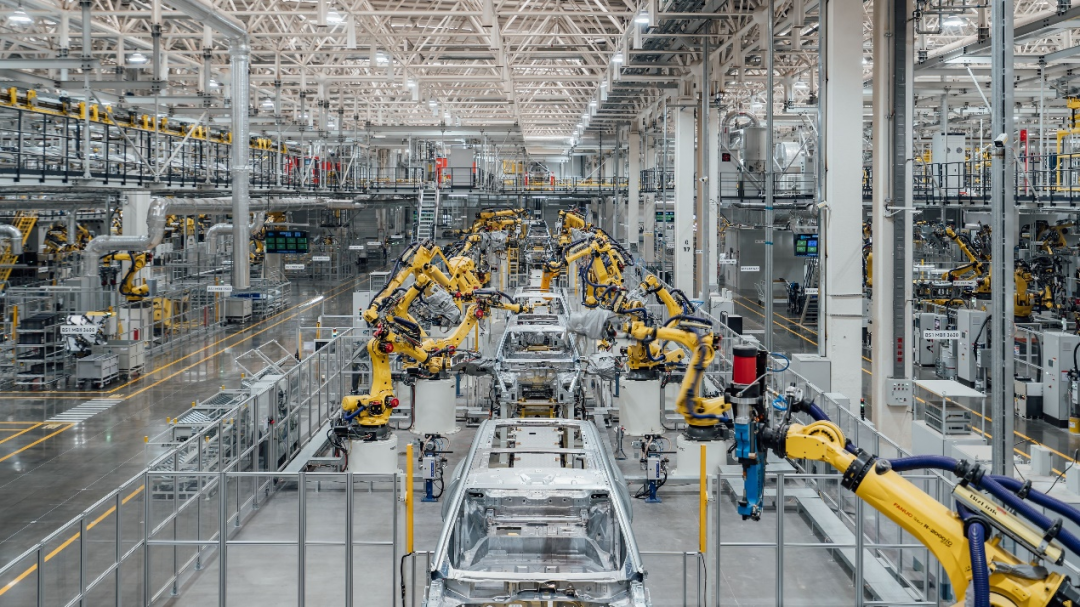
Image | Since July last year, Thalys Automobile's Smart Factory in Chongqing has maintained extremely high production capacity. This situation is expected to continue for a long time to come.
So, after AITO Wenjie's brand ownership is fully transferred to Thalys, can the previously intimate cooperation relationship between the two parties continue?
For this question, Thalys' official announcement has clearly stated that "this transfer of commodity and brand assets does not affect the existing cooperation business between the two parties, and further safeguards the long-term development of AITO Wenjie, embodying the two parties' user-centric approach and commitment to doing well in joint business and AITO Wenjie products."
One fact that no one can deny is that AITO Wenjie has developed into a prominent player in China's automotive industry with a value exceeding RMB 10 billion in a relatively short period, which is the result of the concerted efforts and mutual commitment of Thalys and Huawei.
Last October, facing the influx of new M7 orders, to quickly increase the production capacity of the new model, technical personnel from both sides worked collaboratively day and night in Thalys' Smart Factory. The same situation occurred again at the end of last year when tackling the M9 model.
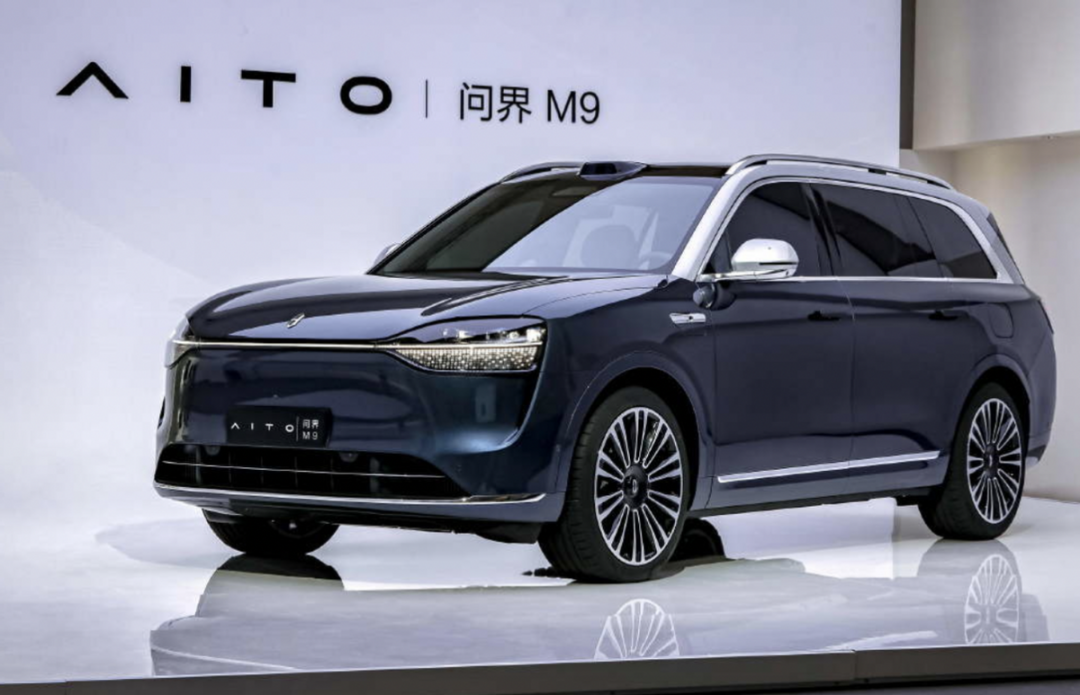
Image | AITO Wenjie M9 is currently the most successful independent luxury model, without "the" and without the need to add the "new energy" definition.
It should be further noted that Thalys Automobile's current work, in addition to further ensuring the production capacity of M9, also involves advancing the transition to the new M7 Ultra. Whether it's already achieved or upcoming, it still relies on the seamless cooperation between Thalys Automobile and Huawei.
Of course, there can be hundreds of interpretations of the issue, but for a company's specific prospects, solid revenue data and financial reports are undeniable.
At the end of April this year, Thalys Automobile released its annual report for last year and its first-quarter report for this year. The data shows that Thalys Automobile achieved a total revenue of RMB 35.842 billion in 2023, a year-on-year increase of 16.1%. In the first quarter of this year, it reached RMB 26.561 billion, with a year-on-year increase of an astonishing 421.76%.
Such performance can be described as flourishing, and its most direct result is that the company's profit point arrived much earlier than expected. Data shows that Thalys Automobile's gross margin in the first quarter of this year increased to 21.5%, and the net profit attributable to the listed parent company reached RMB 220 million—while the original expectation was that its profit point would arrive after 2025.
Do not underestimate the significance of the earlier-than-expected profit reversal point. Tesla, for example, suffered losses for many years. Now, with the ownership rights of the AITO Wenjie brand straightened out, what kind of achievements Thalys Automobile will create in the future is something everyone eagerly anticipates.

Image | The new M5 is being delivered in batches, and the new M7 Ultra is being mass-produced in an orderly manner. No one doubts the bright future of the AITO Wenjie brand.
The unification of AITO Wenjie's brand ownership not only strengthens the consistency of market recognition for its products and trademarks but also clears obstacles for it to enter the international market against the current special international background.
Turbulent times, technological changes, business ups and downs, paradigm shifts...
In this ever-changing era, no one dares to make any guarantees for China's automotive industry. However, one thing is undoubted: both the AITO Wenjie brand and Thalys are in their best era so far, and we have every reason to believe that this automaker will maintain its upward momentum for a long time to come.
We don't know what difficulties lie ahead or where the end is, but the call of the times urges China's automotive industry to forge ahead. Let's look forward to Thalys Automobile creating even more brilliant achievements!







